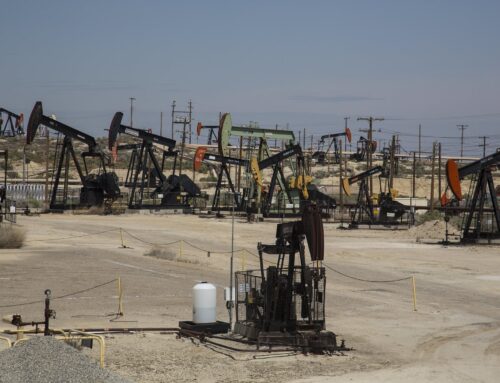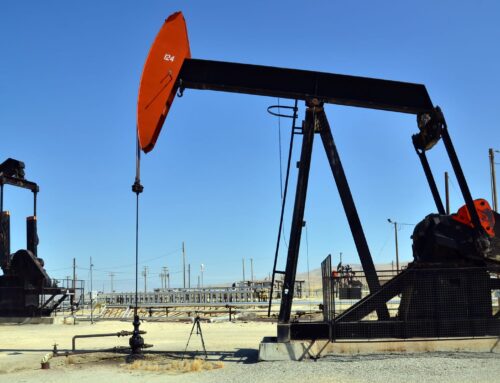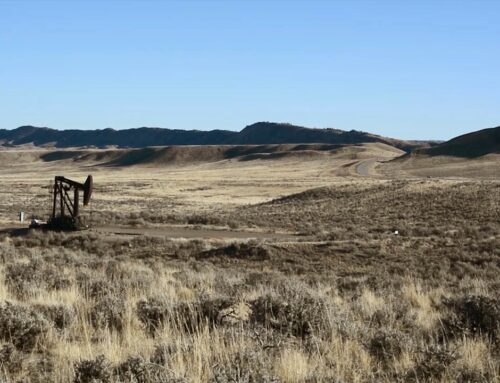President Trump will open up more than half of Alaska’s Tongass National Forest to logging and other forms of development, according to a notice posted Wednesday, stripping protections that had safeguarded one of the world’s largest intact temperate rainforests for nearly two decades.
As of Thursday, it will be legal for logging companies to build roads and cut and remove timber throughout more than 9.3 million acres of forest — featuring old-growth stands of red and yellow cedar, Sitka spruce and Western hemlock. The relatively pristine expanse is also home to plentiful salmon runs and imposing fjords. The decision, which will be published in the Federal Register, reverses protections President Bill Clinton put in place in 2001 and is one of the most sweeping public lands rollbacks Trump has enacted.
The new rule states that it will make “an additional 188,000 forested acres available for timber harvest,” mainly “old growth timber.”
For years, federal and academic scientists have identified Tongass as an ecological oasis that serves as a massive carbon sink while providing key habitat for wild Pacific salmon and trout, Sitka black-tailed deer and myriad other species. It boasts the highest density of brown bears in North America, and its trees — some of which are between 300 and 1,000 years old — absorb at least 8 percent of all the carbon stored in the entire Lower 48′s forests combined.
“While tropical rainforests are the lungs of the planet, the Tongass is the lungs of North America,” Dominick DellaSala, chief scientist with the Earth Island Institute’s Wild Heritage project, said in an interview. “It’s America’s last climate sanctuary.”
While Trump has repeatedly touted his commitment to planting trees through the One Trillion Tree initiative, invoking it as recently as last week, his administration has sought to expand logging in Alaska and in the Pacific Northwest throughout his presidency. Federal judges have blocked several of these plans as illegal: Last week, the administration abandoned its appeal of a ruling that struck down a 1.8 million-acre timber sale on the Tongass’s Prince of Wales Island.
Alaska Republicans — including Gov. Mike Dunleavy and Sen. Dan Sullivan, who is locked in a tight reelection race — lobbied the president to exempt the state from the roadless rule on the grounds that it could help the economy in Alaska’s southeast. Fishing and tourism account for 26 percent of regional employment, according to the Southeast Conference, a regional business group, compared with timber’s 1 percent.
When Sullivan briefed Trump on the Tongass earlier this year, according to an individual familiar with the conversation who spoke on the condition of anonymity to comment frankly, the president asked him, “How the hell do you have an economy without roads?”
Asked about the exchange, the White House declined to comment.
Southeast Alaska’s economy has taken an enormous hit during the pandemic. Robert Venables, the executive director of the Southeast Conference, said in an interview that though 1.4 million cruise passengers typically visit the region each summer, that number dropped to just 48 people this summer. The area’s fisheries also have suffered because of climate change, and the global economic crisis hurt seafood prices.
“The economy is collapsing,” he said, adding that the Trump administration’s action might allow loggers to extract timber from some relatively accessible old-growth stands. “There’s some common-sense, near-term relief.”
But even Venables criticized the administration as going too far and predicted that the decision probably would be reversed next year if Democrats won the White House.
“It seems like the ball’s being punted from one end to the other,” he said. “The real disappointment here is a compromise could not be found that could create a more lasting peace.”
Logging in Alaska costs U.S. taxpayers millions each year, because of a long-standing federal mandate that companies profit from any timber sale. This means the Forest Service often covers harvesters’ costs, including road building. According to a Taxpayer for Common Sense analysis of the Forest Service’s accounts, the Tongass timber program has lost roughly $1.7 billion over the last 40 years.
After Taxpayers for Common Sense commented during the federal environmental review that it would be more economically efficient to hold timber sales in parts of the forest that already have roads, the Forest Service acknowledged that that was true.
The agency said its plan “reflects a different policy perspective on the roadless management issue rather than a change in the underlying facts and circumstances,” adding that the Trump administration believes “that overall reduction in federal regulations is good for the American public due to reduced burden to the taxpayer and reduced burden to business.”
Ninety-six percent of the comments during the U.S. Forest Service’s environmental review opposed lifting the existing safeguards, while 1 percent supported it. In a sign of how unpopular the administration’s push to lift roadless restrictions has become, all five Alaska Native tribal nations withdrew as cooperating agencies in the process two weeks ago, after the Forest Service published its blueprint for opening up the entire Tongass to development.
“We refuse to allow legitimacy upon a process that has disregarded our input at every turn,” the tribal leaders wrote.
Some of these tribes had conducted clear cuts decades ago, when they gained legal control over their ancestral lands. Marina Anderson, the tribal administrator for the Organized Village of Kasaan on Prince of Wales Island, recalled in a phone interview that her late father was a logger and said that the entire village had suffered the consequences of felling so many trees. A landslide occurred Monday morning; while Anderson was speaking on the phone, a second landslide occurred.
“These landslides happen on clear-cut lands. This morning I said, ‘It’s landslide day,’ ” she said, noting there had been heavy rain. “I’ve grown up seeing these mudslides my whole life. As a culture committed to balance, it’s my responsibility to bring back that balance from what [my father] had done.”
The roughly 60 residents in the village, which does not have a grocery store, rely heavily on salmon, berries and other staples they can harvest from the forest. “Climate change is hitting us pretty hard,” Anderson said, adding that tribal officials oppose extensive logging because old-growth trees help lower stream temperatures and provide key wildlife habitat.
Referring to the new plan, she said, “It will only devastate even more what is already in progress.”
Environmentalists, who have successfully blocked a slew of timber sales on the Tongass since the early 1970s, said they will challenge the repeal of protections in court.
“Years ago a previous administration tried to eliminate the essential protection the roadless rule provides on the Tongass and the courts rejected the attempt,” said Eric Jorgenson, managing attorney for the Alaska office of Earthjustice, an environmental law firm. “Today’s effort is no better justified and we believe it will meet a similar fate.”
Still some experts said they worried the decision could greenlight timber sales that would release more carbon into the atmosphere. DellaSala noted that last month he had to evacuate from his home near Talent, Ore., because of a massive blaze nearby, a clear sign of how catastrophic climate impacts are already affecting the United States.
“It’s personal for me,” he said, adding that his home survived but that many others nearby did not. “We don’t have a lot of time to get this right, and we are heading in the wrong direction.”










